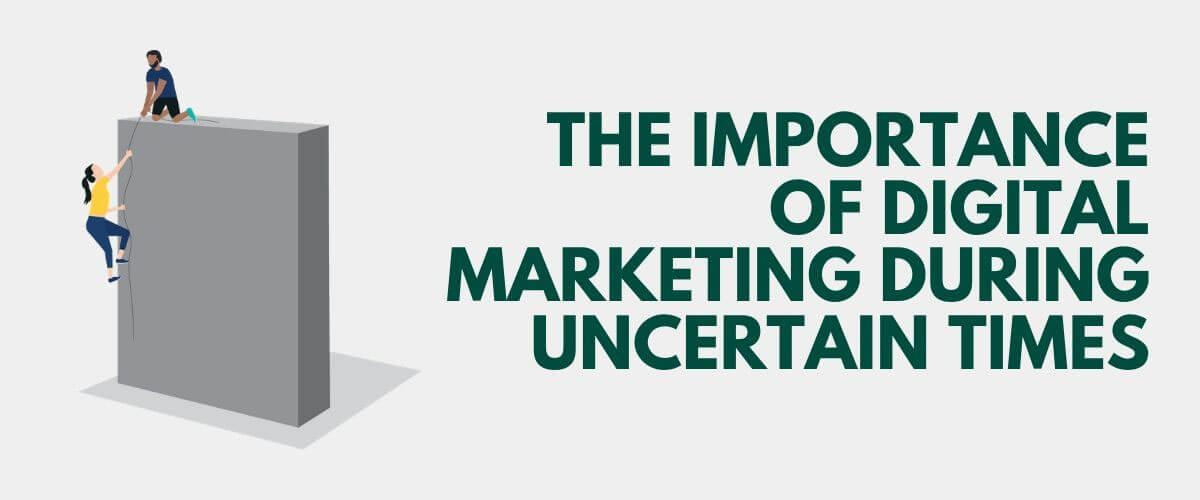Only a few months ago, we began to hear an uneasy whisper of a mysterious illness that rapidly evolved into a pandemic. This has placed a countless number of businesses in an unprecedented situation. The same question echoes off everyone’s lips: What’s next? History has seen a number of devastating recessions, notably the Great Depression, which ran from 1929 to 1939, and the Great Recession, which began in 2007 and tapered off in 2009. Millions of businesses had to learn the definition of the term “fight or flight” through firsthand experience. Many flew, but we tend to remember those who fought.
So how did Coca-Cola manage to barrel through the Great Depression, or Netflix and Wells Fargo through 2007’s recession? Their owners didn’t panic—or if they did, they didn’t show it. They knew how to think quickly and evaluate how they could take advantage of the future. They elbowed their way through crises and managed to not just survive, but ultimately to thrive. If you’re a business owner standing amid the uncertainty of our economy’s future, we want you to know there are strategies to help you keep your head above water until you discover land. In this article, we’ll show you how and why you should use advertising to build brand awareness and customer loyalty and to carry your business through today’s pandemic.
Find Your Santa Claus
It wasn’t easy for Coca-Cola to navigate the Great Depression. On several occasions during the 1930s, they saw more valleys than peaks. But during this decade, Coca-Cola developed a marketing strategy so successful that they still use it today. In 1931, artist Haddon Sundblom was commissioned to create a series of posters that depicted a jolly Saint Nick enjoying a fresh bottle of Coke. These posters were bright and cheerful, and the images of an iconic holiday figure exuding joy brought a bit of wonder back into a world that was heavily suffering. The campaign was a slow burn, but a successful one. A few years later, Coca-Cola’s advertisements encouraged children to leave their product out for Santa on Christmas Eve, and today, we still see modernized versions of Coca-Cola’s favorite spokesperson. This was advertising at its finest, and Coca-Cola managed to survive the Great Depression and beyond.
How do you survive a crisis? You have to find your own Santa Claus and show people why you’re valuable. You have to decide how to manipulate your company to meet the needs of customers who are suffering just as much as you are. A brilliant article on automakers navigating the Great Depression explores how General Motors drastically slashed the prices of their products to meet the needs of consumers. This was a significant gamble, but it was smart. General Motors is another example of a company that took a risk that resulted in success. This article says it best: “History shows that structural shifts in the pecking orders of industries occur more often in difficult times—and these shifts endure for a long time. So the fight to sustain company performance during a downturn is not just about short-term survival—it is also about long-term positioning in the industry hierarchy. This is clearly a battle worth fighting.”
Budget Reallocation
When you’re considering how COVID-19 will affect your business, you have to plan for a decline. It’s important that you sit down and determine where you are now as well as where you expect to be in the weeks, months, and years to follow. When businesses start to see their profits decline as a result of a recession, they tend to look for places they can save money. For many businesses, marketing is one of the first things to go—and this is a decision you can expect many of your competitors to make. Eradicating their digital marketing may greatly impact their future success—but not in a positive way.
If you’re examining your profit losses, you must also look at where a recession may save you money. COVID-19 has resulted in a mass quarantine in many countries, which means many businesses aren’t spending any of their budgets on travel expenses or office utilities. If you can, reallocate some of the money you’d normally spend on these things to marketing. The online world is a vital one right now—and in fact, it has been for years. Just look at Netflix, which began streaming videos in early 2007. This directly allowed them to survive the recession that began later that year.
The Importance of Utilizing the Internet
The Great Recession ended in June 2009. In the final quarter of that same year, Netflix brought in $30.9 million—which, if we adjust for inflation, would come to $37.2 million today. As we mentioned above, COVID-19 has forced millions of people to stay at home for weeks and even months. The amount of time people are going to spend online will continue to dramatically increase, and if you’re searching for ways to keep your business afloat, you must take advantage of this. If you think smart, you can grow your visibility and your brand and come out of this alive. For many businesses, digital marketing is the best approach.
Search Engine Optimization
“Over the years, we’ve seen evidence time and time again that SEO is a long-term marketing strategy in which the effort you put in now comes back in spades over the following years. The common advice… to invest in the stock market when the market is down is absolutely applicable to digital marketing. Set yourself up for future success by continuing [to] build your online presence through this downturn.” —Chris Vale, Vice President of SEO
This sentiment is one you should put in your pocket and keep there indefinitely. Right now, short-term success simply may not be a feasible option. That said, you shouldn’t stop PPC entirely unless you have absolutely no revenue to spare. A good amount of your competition may have bowed out at this point, so you now have the opportunity to look for ways to use PPC right now to grow your brand awareness. Depending on your industry and competition, you may find that keyword bids have decreased. Maintaining a strong presence at this time is crucial.
Looking at the Long Term
For businesses that have yet to utilize Search Engine Optimization, it’s important to realize that this strategy can provide exponential long-term results using the following:
- Relevant content and keywords
- Backlinks
- Blog posts
- Organic rankings
- Internal links
- Visual content
SEO grants your website authority, and continuous practice will help you retain that authority. Research tools such as SEMrush allow you to examine valuable keywords and their search volume. You can also view how you rank for these keywords. At this time, you may find you have less competition than you had in the past and will in the future. Combined with the fact that more people are spending time online, this creates an opportunity for you to expand your brand awareness and have more of your content read.
If you work on improving your rankings now, you can continue to maintain them when the recession dies down and more competition begins to filter through. Taking the time and carving out the budget now will help you tremendously in the long run, and you may find yourself becoming a leader in your industry.
Handling Your Social Media Presence
How you handle your social media presence during this time is as important as the money you’re putting into marketing. Many businesses are communicating with their customers via e-mail or social media with empathy and thoughtfulness, and you’ll notice they’re making a positive impression. What recent e-mail in your inbox has spoken to you? What companies have effectively communicated that they care? You build customer loyalty by showing your customers you’re equally loyal to them.
Your conversion rates have likely decreased by this point, and you have to expect them to continue to do so for a while. However, Facebook and Instagram’s cost-per-impressions will likely decrease, which you could consider taking advantage of. Facebook’s Small Business Research Hub offers some of the following steps you can take at this juncture:
- Keep yourself safe and informed
- Stay in touch with your customers
- Host online events
- Prepare a customer service plan
- Provide a list of FAQs

Your Business Can Survive This
We’ve all heard the sentiment that Rome wasn’t built in a day. Right now, you may find yourself looking at proverbial bricks that you can’t fathom building into a wall without becoming overwhelmed. But we wish to stress to you that, by taking the proper steps, you can survive this. The companies we’ve listed above—along with thousands of others—have faced the same conditions, and they had the presence of mind to forge through them. You can do the same.
The digital world greatly affects our physical world. It’s what businesses need to thrive at this point, and it’s extremely important that you don’t allow your efforts to slip. If you’re able to use digital marketing at this time, we encourage you to do so.
At Logical Position, we strive to show the empathy many people seek from businesses. We understand the importance of the small businesses that keep their communities alive, and we encourage you to push through and become the success story that will be quoted in the years to come. If you have any lingering questions, you can ask us—we’ll do our part to help you find the answers you’re looking for, as what we want most is your success.
“Let perseverance be your engine and hope your fuel.”—H. Jackson Brown, Jr.




